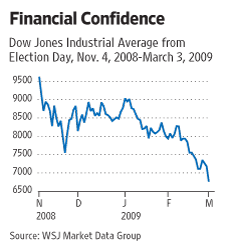MadelynIris
Refugee
Irvine,
Agree with everything you say... and I am comfortable with giving more...
But your quote below...
really sets off the conservative in me. In fact, what you say above, is I guess, exactly why I am conservative. I come from very humble beginnings. We never had a house, and my parents worked very hard for every penny they had. We grew our own food, hunted, and lived very frugally. They were essentially share croppers during one shift, and laborers another. Even with that lifestyle, we still didn't get any grants or subsidies for my bi-directional state school, only loans.
It's hard for me to describe, but it was the driving force behind me working so hard early in my career. All I really had was some ingenuity and a massive drive to my name. And that is why I feel uncomfortable sometimes, giving it back in the form of taxes.
I remember reading the article recently about U2 being berated for moving their royalties corporation to the Netherlands to avoid higher tax in Ireland. I thought to myself, what a bunch of wankers.
How's the song go? And you become a wanker so the wanker will not break you... yeah that's it.
I'm finding myself in the wanker category here.
Agree with everything you say... and I am comfortable with giving more...
But your quote below...
suppose the bigger thing is the sense that you have, through your own merit, "earned" that $240K. have you? no one helped you earn that? you weren't given advantages through sheer luck of the birth lottery enabled you to make an income like that? it was all elbow grease and gumption? and not to say that you don't have both, but i think that there are people who make only $40K who have every bit the talent and work ethic that you do, but due to a variety of circumstance beyond their control, they have not had the opportunities afforded to you by ... taxes.
really sets off the conservative in me. In fact, what you say above, is I guess, exactly why I am conservative. I come from very humble beginnings. We never had a house, and my parents worked very hard for every penny they had. We grew our own food, hunted, and lived very frugally. They were essentially share croppers during one shift, and laborers another. Even with that lifestyle, we still didn't get any grants or subsidies for my bi-directional state school, only loans.
It's hard for me to describe, but it was the driving force behind me working so hard early in my career. All I really had was some ingenuity and a massive drive to my name. And that is why I feel uncomfortable sometimes, giving it back in the form of taxes.
I remember reading the article recently about U2 being berated for moving their royalties corporation to the Netherlands to avoid higher tax in Ireland. I thought to myself, what a bunch of wankers.
How's the song go? And you become a wanker so the wanker will not break you... yeah that's it.
I'm finding myself in the wanker category here.





